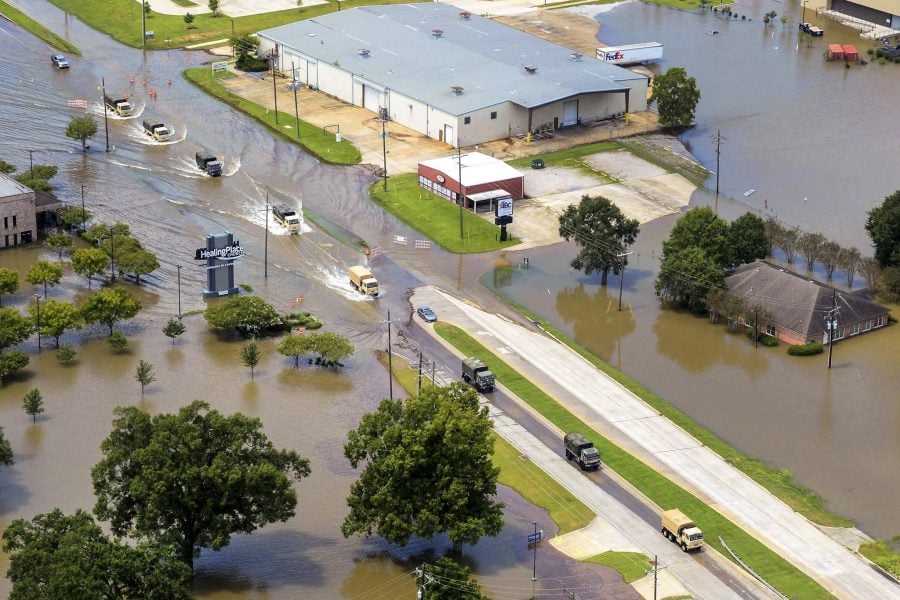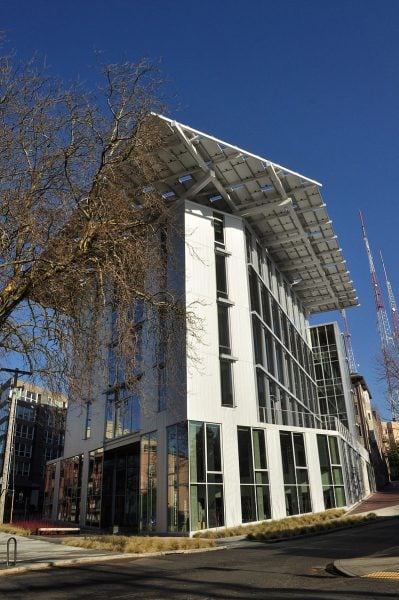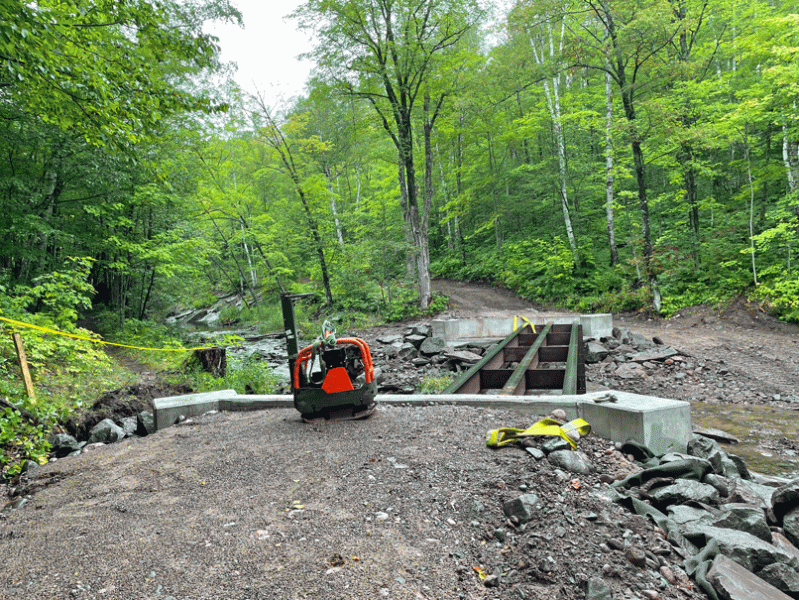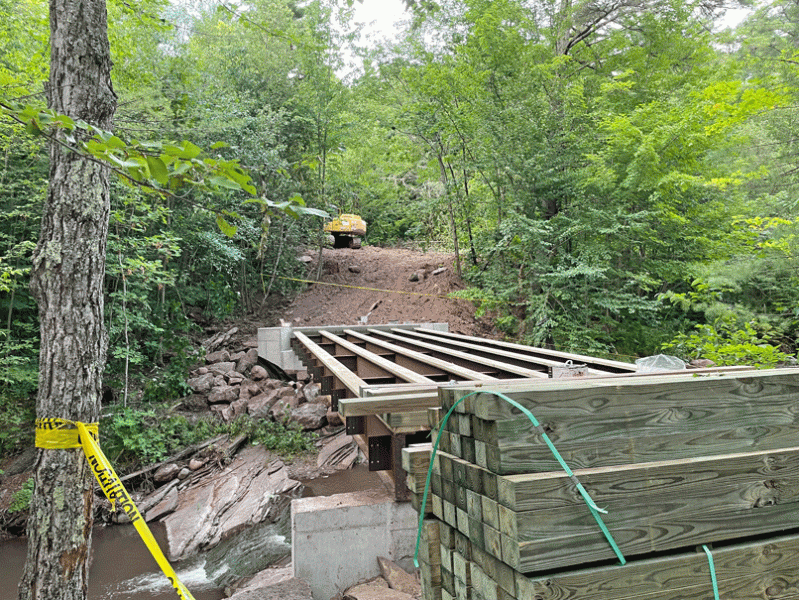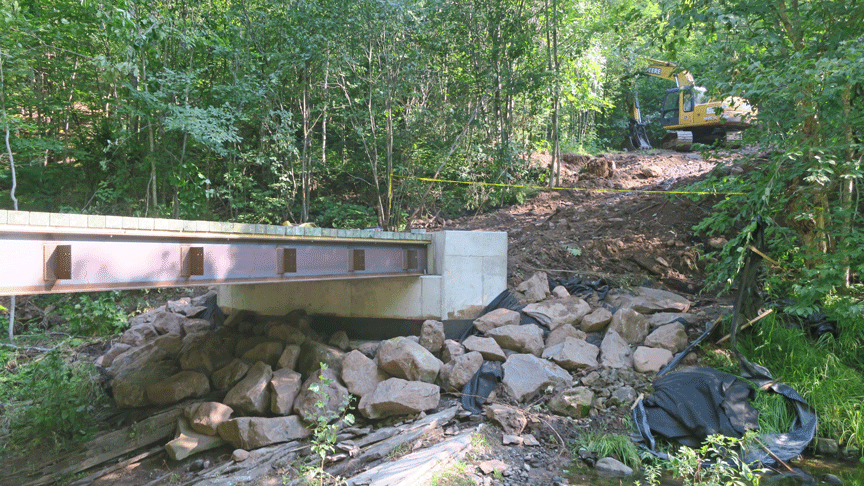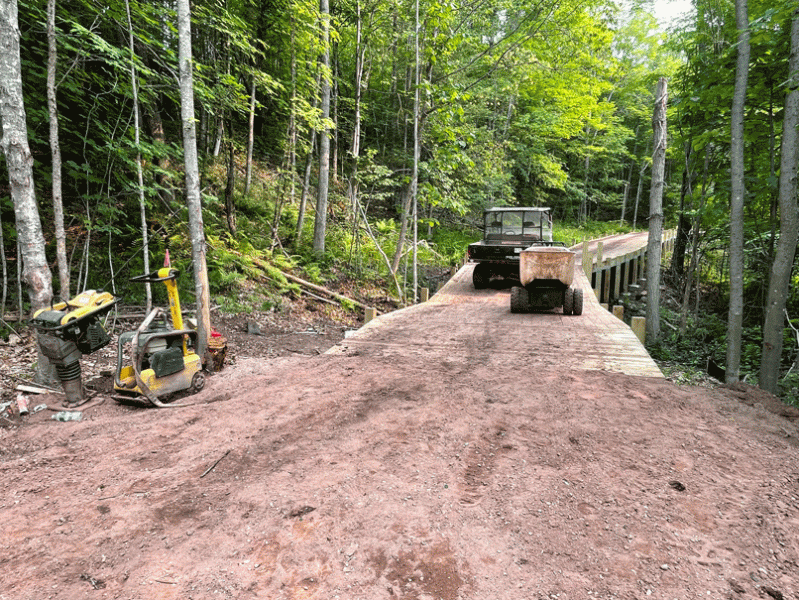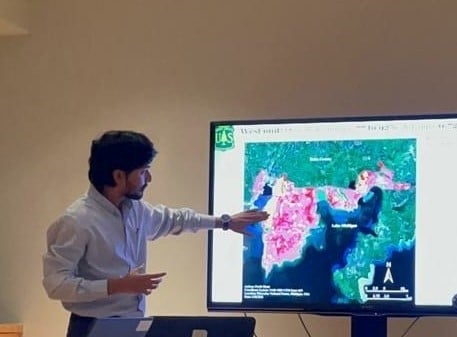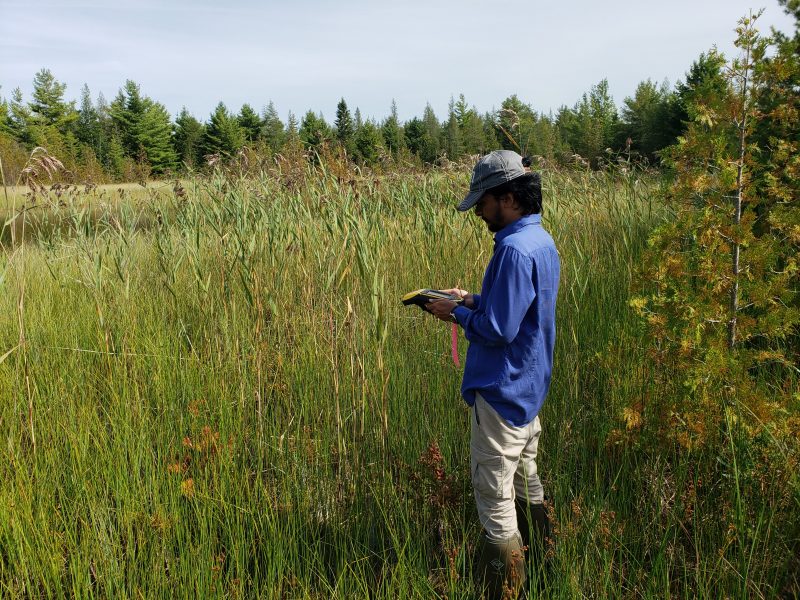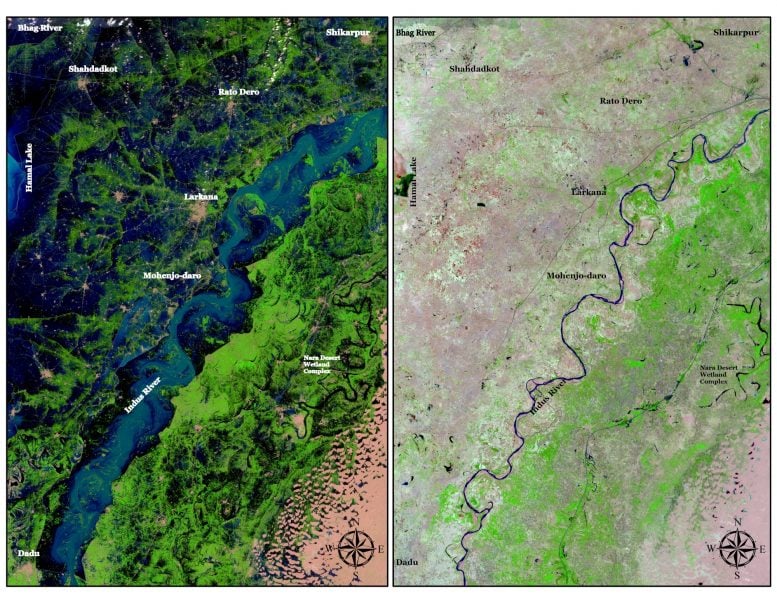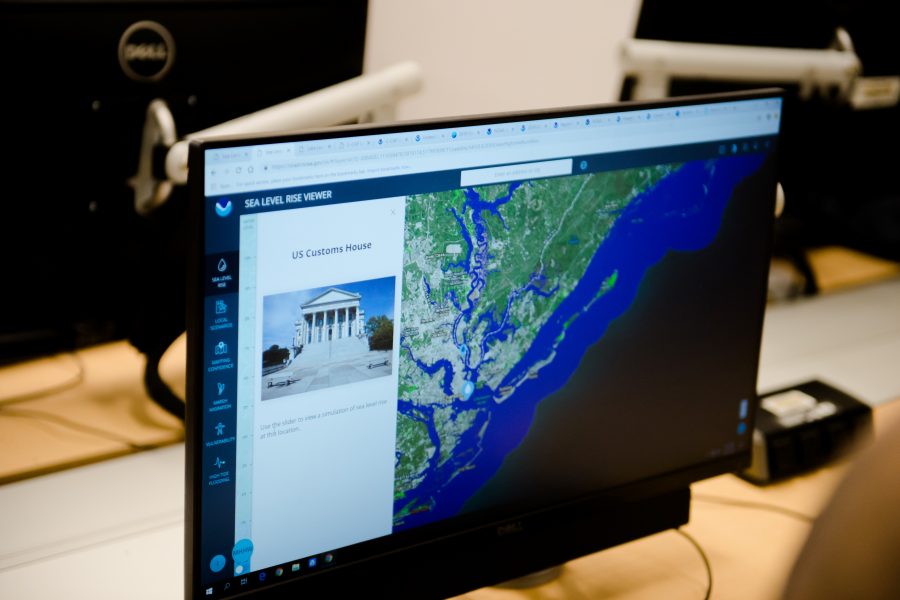You can drive over a failed roadway. Failed bridges, though, are a different story–one that qualified structural engineers are responsible for preventing through good design practices and thorough bridge inspection, evaluation, and management.
Dr. Chris Gilbertson, PE, knows, lives bridges. Really respects their importance, too, in keeping us safe and getting us where we need to go. He is bringing his significant experience, expertise, and passion to Michigan Tech. He is teaching the Spring 2025 hybrid online/on-campus course CEE 5261, Bridge Construction and Design for CEGE. This course runs from January 6 to April 18.
Get an Overview AASHTO Bridge Design Specifications.
This fundamental course, required for Michigan Tech’s bridge analysis and design certificate, will provide an overview of the AASHTO (American Association of State Highway and Transportation Officials) bridge design specifications. These specifications include loading and load effects, as well as the design of steel and concrete superstructure and substructure components. CEE 5261 also introduces students to related bridge-management topics, such as inspection, load rating, and asset management.
If you haven’t heard of AASHTO, it “is a nonprofit, nonpartisan association representing highway and transportation departments in the 50 states, the District of Columbia, and Puerto Rico.” Although AASHTO covers all transportation modes, “its primary goal is to foster the development, operation, and maintenance of an integrated national transportation system.” It is a leader in setting standards for the design, construction, and maintenance of highways and materials.
“Most structural engineering curricula are focused on aspects of building design. This course will provide content focused on bridge design and the AASHTO specifications for both bridge design and evaluation,” Gilberston confirmed. Another unique aspect of CEE 5261 is the focus on bridge management. Bridge management is complex; it involves the inspection, load rating, and asset management that goes into maintaining an agency’s bridge network.
Students will gain real-world experience through a class project involving a local case study. That is, they will take a set of plans from a bridge located in the Western Upper Peninsula. Next, they will use those plans and inspection reports to produce a load rating. Finally, they will determine the safe load carrying capacity of the structure as it stands, deterioration and all.
Learn About Bridge Design from an Experienced Instructor.
Dr. Chris Gilbertson, PE., is not only an adjunct associate professor for the Department of Civil, Environmental, and Geospatial Engineering (CEGE), but also an associate director at CEGE’s Center for Technology and Training.
An expert in bridge design, load rating, and asset management, Gilbertson is a versatile, seasoned instructor who has taught college, practitioner-level, and high school audiences. Pre-college outreach is also his passion. In particular, he is active in the AASHTO’s hands-on TRAC (Transportation and Civil Engineering) outreach program. This innovative program integrates real-world engineering problems into 7th-12th grade STEM curriculum. For instance, previous students have designed bridges and analyzed the environmental and economic effects of building highways.
Gilbertson is also involved with NSTI (National Summer Transportation Institute), an interactive program that introduces students to STEM-based transportation careers.
Use the Bridge Analysis and Design Certificate to Launch into Graduate Study.
After completing the required CEE 5261 course, students can then broaden their knowledge. They will take two additional structural design elective courses to complete the certificate: Bridge Analysis and Design. They may choose from three options: Prestressed Concrete Design, Steel Design II, or Concrete and Masonry Building Systems. These three electives provided material that is of related depth.
The Bridge Analysis and Design certificate was also developed to introduce engineers to the AASHTO LRFD (Load Resistance Factor Design) bridge design specification.
This certificate is flexible, too. Graduates can stop after earning it, using the credential to help them progress in their careers. Whether they work in structural engineering, transportation, bridge project management, and more, this certificate will be an asset.
Alternatively, graduates may use this certificate to launch into a master’s program. That is, they can stack their bridge design credential with other structural engineering certificates, such as Advanced Analysis, to build a customizable master’s degree in civil engineering.
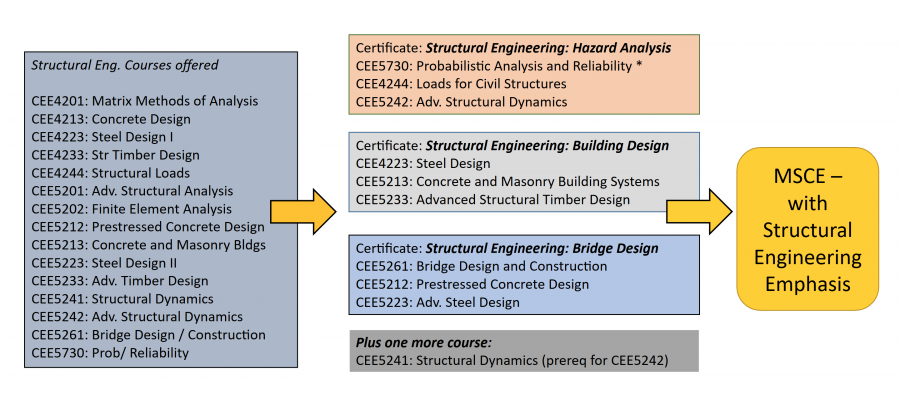
Get Training for Pressing Infrastructure Challenges.
Whether students choose to earn only the certificate or advance to a master’s, they should know that structural engineers with advanced education are needed now more than ever. First, the world needs engineers who can develop solutions for the effects of natural hazards, increasing extreme-weather events, and climate change.
And in the US, especially, there is a demand for engineers who can contend with infrastructure deterioration and maintenance. Bridges are a critical piece of infrastructure that must be designed safely and sustainably.
In their 2021 report card, the American Society of Civil Engineers (ASCE) gave US infrastructure the overall grade of C-. This grade, at the bottom end of average, reflected the poor condition and performance of American roads, levees, parks, transit, inland waters, ports, rail, and more.
Whereas rail had the highest grade (B), and transit the lowest (D-), that for bridges was a C. Of the over 617,000 bridges in the United States, 42% of them are at least 50 years old. And 7.5% (or 46,154) are considered structurally deficient, or in poor condition. The ASCE report card also revealed a 2.5 trillion-dollar funding gap in US infrastructure.
However, the situation in Michigan is bleaker. In Michigan’s last ASCE Report Card, the bridge grade was D+. In 2022, the state had 11,314 bridges, with 11% being in poor condition, which is higher than the national average (7.5%). These bridges include heavily traveled structures, such as I-696’s overpass and ramps with I-75. And only 34% of these structures are in good condition, which is a drop from 43.5% in 2018.
According to Gilbertson, the condition of these bridges is largely due to limited availability of funding, what the ASCE refers to as chronic underinvestment in infrastructure.
Learn More About Making a Difference in Bridge Construction and Design.
Civil engineers who specialize in infrastructure, then, definitely have their hands full. They must find innovative solutions to fixing, maintaining, and increasing the lifespan of existing structures, such as bridges, roads, and buildings. And while designing and enacting these solutions, they must make difficult decisions about priorities and budgets while preserving safety and improving functionality. Tough jobs indeed!
Michigan Tech’s CEE 5261 course and certificate in Bridge Analysis and Design can educate civil engineers to meet these upcoming challenges.
To get more information about the certificate and master’s degree in structural engineering, visit their corresponding pages in Global Campus. To ask specific questions about any of the structural engineering programs, contact cege@mtu.edu or use the Request Information Button Below.
Structural engineering underpins wealth creation; it provides a bedrock of infrastructure that supports civilized living: homes for people to live in, places to work, and the lifeline systems we all need.

